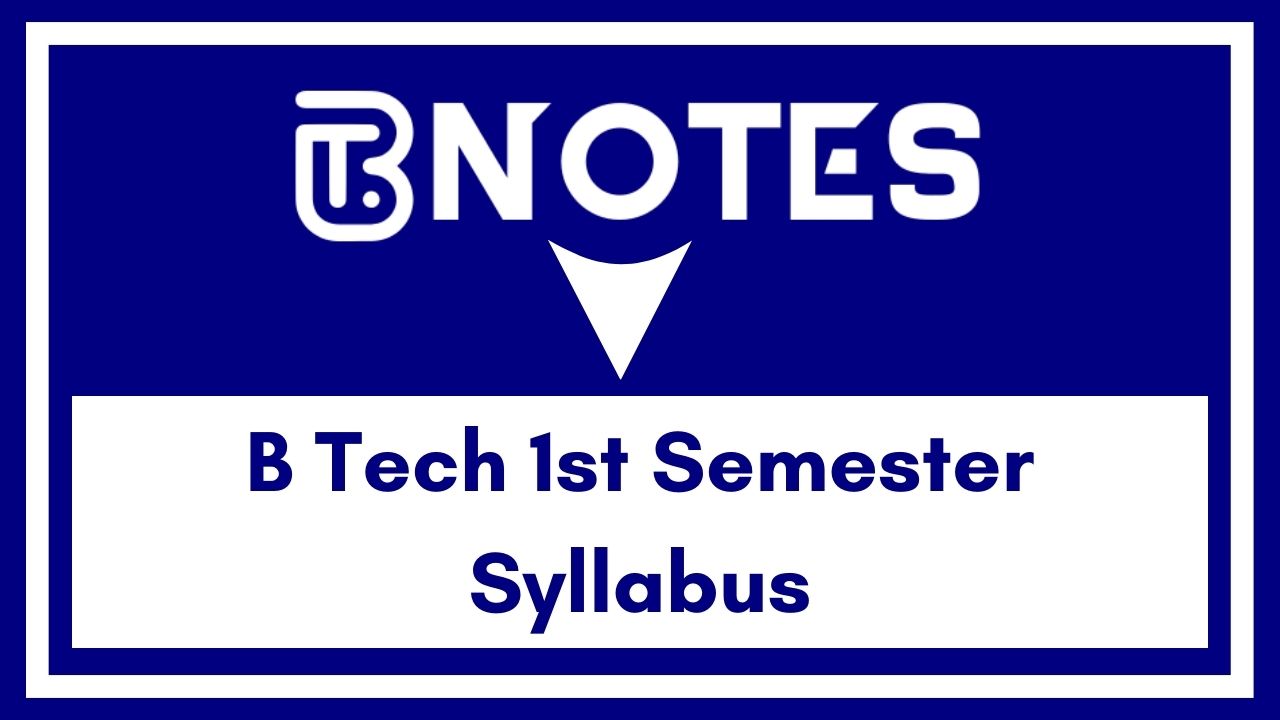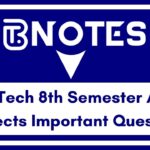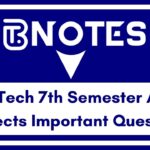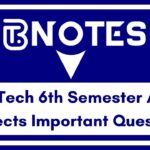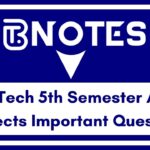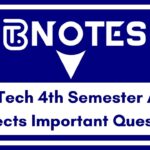The Bachelor of Technology (B.Tech) is a four-year undergraduate engineering program designed to equip students with foundational and specialized knowledge in their chosen field. The 1st semester serves as the entry point, focusing on core sciences, mathematics, and introductory engineering concepts.
This syllabus is a general representation of what most B.Tech programs offer in their first semester across branches like Computer Science, Mechanical, Civil, and Electrical Engineering. It aims to build a strong base for advanced studies while introducing practical skills through labs and workshops. Note that specific subjects or topics may vary slightly depending on the university or institution.
B Tech 1st Semester Syllabus
Duration: Approximately 5-6 months (including classes, labs, and exams).
Focus: Foundational sciences, basic engineering, and skill-building.
Theory Subjects
1. Engineering Mathematics – I
- Topics:
- Differential Calculus: Limits, Continuity, Differentiation, Applications (Maxima/Minima, Tangents/Normals).
- Integral Calculus: Definite and Indefinite Integrals, Applications (Area, Volume).
- Sequences and Series: Convergence, Divergence, Tests.
- Matrices: Types, Operations, Determinants, Inverse, Eigenvalues.
- Objective: Develops problem-solving and analytical skills for engineering applications.
2. Engineering Physics
- Topics:
- Mechanics: Newton’s Laws, Work-Energy Theorem, Friction, Circular Motion.
- Waves and Oscillations: Simple Harmonic Motion, Wave Equation, Superposition.
- Optics: Interference, Diffraction, Polarization.
- Modern Physics: Quantum Mechanics Basics, Photoelectric Effect, Lasers.
- Objective: Introduces physical principles relevant to engineering.
3. Engineering Chemistry
- Topics:
- Atomic Structure: Quantum Numbers, Periodic Table Trends.
- Chemical Bonding: Ionic, Covalent, Metallic Bonds, VSEPR Theory.
- Electrochemistry: Conductance, Electrodes, Batteries.
- Water Technology: Hardness, Purification, Corrosion Basics.
- Objective: Provides chemical knowledge for material science and environmental applications.
4. Basic Electrical Engineering
- Topics:
- DC Circuits: Ohm’s Law, Kirchhoff’s Laws, Series/Parallel Circuits.
- AC Circuits: Phasors, Impedance, Power Factor.
- Electrical Machines: Transformers, DC Motors (Basics).
- Measuring Instruments: Voltmeter, Ammeter, Multimeter.
- Objective: Introduces electrical concepts and circuits.
5. Engineering Graphics/Drawing
- Topics:
- Introduction: Drawing Instruments, BIS Standards.
- Projections: Orthographic Projections, Isometric Views.
- Conic Sections: Ellipse, Parabola, Hyperbola.
- Development of Surfaces and Sectional Views.
- Objective: Teaches technical drawing skills for engineering design.
6. Communication Skills (English)
- Topics:
- Grammar: Tenses, Articles, Prepositions.
- Vocabulary: Synonyms, Antonyms, Word Formation.
- Writing: Paragraphs, Emails, Reports.
- Speaking: Group Discussions, Presentations.
- Objective: Enhances professional communication skills.
Practical/Lab Subjects
| Lab | Experiments/Activities | Objective |
|---|---|---|
| Physics Lab | Measurement of wavelength using diffraction grating.Verification of Newton’s Laws.Study of oscillations using a spring-mass system. | Hands-on application of physics concepts. |
| Chemistry Lab | Titration (Acid-Base, Redox).Determination of water hardness.Preparation of simple compounds. | Practical understanding of chemical principles. |
| Electrical Engineering Lab | Verification of Kirchhoff’s Laws.Study of AC/DC circuits.Use of multimeters and oscilloscopes. | Familiarizes students with electrical components and measurements. |
| Workshop Practice | Carpentry: Basic joints.Fitting: Filing, Cutting, Drilling.Smithy: Shaping metal. | Introduces basic manufacturing and fabrication skills. |
| Language Lab (Optional) | Listening comprehension.Pronunciation practice.Interactive speaking exercises. | Improves English proficiency. |
Assessment
- Theory: End-semester exams (typically 60-70% weightage) + Internal assessments (assignments, quizzes, midterms; 30-40% weightage).
- Practicals: Lab performance, viva voce, and lab records.
- Credits: Each subject usually carries 3-4 credits (theory) or 1-2 credits (labs), totaling around 20-24 credits for the semester.
Notes
- Variations: Some universities might replace “Engineering Graphics” with “Introduction to Programming” (e.g., C) or include “Environmental Science” in the first semester.
- Branch-Specific: In rare cases, branch-specific subjects may appear, but the focus is typically on a common foundation.
Conclusion
The 1st semester of a B.Tech program lays a critical foundation for future engineering studies by blending theoretical knowledge with practical skills. It introduces students to essential scientific principles, mathematical tools, and basic engineering concepts that are universally applicable across various branches.
While the syllabus may differ slightly based on institutional preferences, its core purpose remains consistent: to prepare students for the technical challenges ahead. Successfully completing this semester equips students with the skills and confidence needed to tackle more specialized subjects in subsequent semesters.
